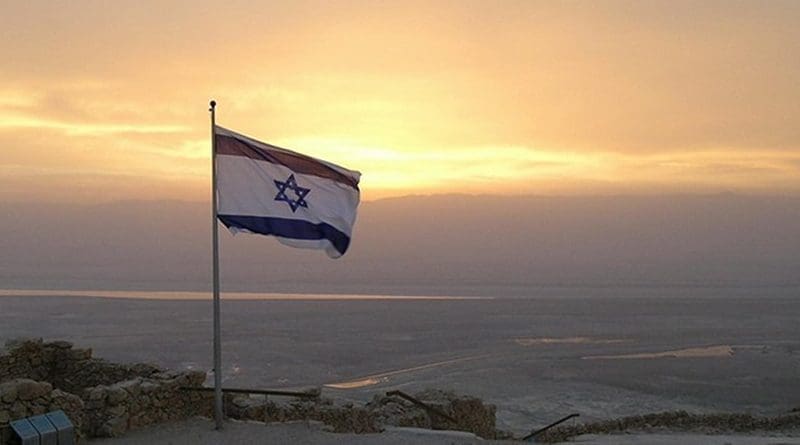Politics Of Centrism And Israeli Elections – OpEd
By MD. Afroj*
The 21st national election in Israel is scheduled to be held on April 9, this year. As elections are getting closer the series of accusations and slandering has started dominating the mainstream media space.
Israeli elections are often very colorful in an ideological sense, this is because Israel’s proportional representation system has created a very complex and diverse political culture where parties with different ideologies participate and represent the interests of their voters in the Knesset (Israeli parliament). Due to the complex nature of the Israeli electoral system, there has been a legacy of coalition government. Post-independence Israeli politics was manly dominated by the left parties. This trend changed in 1977 with the rise of Likud.
Generally, Israeli political parties are mainly divided into four groups: right wing parties (hawkish and social conservative in their policies), left wing (dovish and socialist), Arab parties (mainly representing the interests of Israeli Arab minority) and the ultra- orthodox parties (representing the interests of haredim or orthodox communities).
In recent decades, especially after 1990s, Israel has witnessed the emergence of a fifth group which is neither left nor right in the true sense. They carry the certain qualities and characteristics of both right and left.
For example, they are socialist/welfarist in terms of domestic policies but on the issues of national security, they are hawkish like any other right wing party. They show their interest in the solution of Palestinian problem but only as political tokenism. These parties have emerged and registered surprising electoral gains in their initial years of formation. However, they gradually lose their electoral significance in a very short time.
For instance, Kadima which was established in 2005 and formed a coalition government with 29 seats in the Knesset, but lost drastically in 2013 and reached to its nadir with two seats in the Knesset. Later, it dissolved in 2015. But the party like Yesh Atid in the centrist camp, is still relevant, though it has lost a significant number of electoral support and reduced from 19 seats in 2013 to 11 seats in 2015 (14 percent of total vote to around 8 percent of total vote share).
If we see the electoral trends of last one and half decade in Israel, we can easily see how the centre has emerged and strengthen itself at expenses of the left. Although, we cannot deny the fact that it has also gained votes from the right wing camp as well. But these breakaways from the rightwing camps are conditional and reshift anytime.
This year two major centrist parties Yesh Atid and Israel Resilience Party has decided to run on a joint list. Israel Resilience Party though is a newly formed party but opinion polls are suggesting that it could do significant changes in the upcoming elections, especially when the charges of corruption on Netanyahu are running high.
Recently, in a poll conducted by the Israel Hayom, prior to the framing of charges, suggested that 43 percent of voters showed confidence in him as the most suitable candidate for Prime minister, compared to 36 percent who favored Gantz (Leader of Israel Resilience Party). Netanyahu remained most popular among ultra-Orthodox (82%), national-religious (77%), and traditional (64%) Jewish voters, while Gantz was more popular among secular Jewish voters. Other polls conducted in the wake of publication of corruption charges pending against Netanyahu showed that Likud poised for electoral defeat.
Another poll published by Israel’s public broadcasters Kan between February 28 and March 1 showed Likud falling to 29 seats to joint centrist list 37 seats, and with 41percent of respondents listing Gantz as the most suitable candidate for prime minister, compared to 40 percent who favoured Netanyahu.
The most important thing which is missing in this election is the “Israeli left”. They are hardly visible in the mainstream media. For this, credit goes to Netanyahu and his ruling government for successful vilification of left in Israeli mainstream. The pro-peace position and solutionist attitude of the left has been successfully projected as anti-national and less patriotic. Prime Minister Benjamin Netanyahu and his party Likud has never missed any chance of left bashing through various platforms.
With these current realities, it seems difficult for left to make a major comeback in the upcoming elections. Centrist groups have successfully positioned itself against the Likud and its right wing allies. They have cornered the government over the issues of corruption and fraud. Some rightwing groups are also not happy with the policies of the Netanyahu’s government, especially his policies towards Hamas and Gaza. But Likud and its allies seems confident of their another term in the Knesset.
Time will tell what the final results would be but certainly this election would be historic in many sense. For the first time in the Israeli election, everyone is on the right side of the political spectrum. Being left or even sounding as left would be electorally risky. The fight is definitely going to be between the centre right (Centrist Parties) and the right (Likud and its allies).
*MD. Afroj is a Senior Research Fellow at the Centre for Middle Eastern Studies, Jamia Millia Islamia, New Delhi, India. He can be reached at [email protected]

